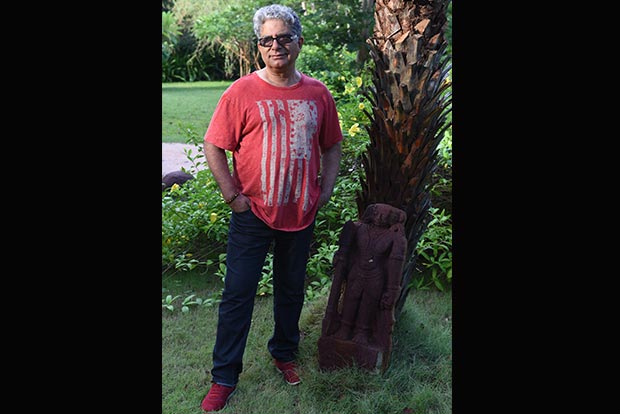‘Without compassion, there is no true love’
US-based new-age guru and integrated medicine activist Deepak Chopra, who was in Puducherry to open his first healing centre in India, speaks of the need to cultivate the four divine emotions and the benefits of meditation;
By : migrator
Update:2016-07-30 19:46 IST

Chennai
Prominent India-born author, public speaker and new age guru Deepak Chopra, 68, was in Puducherry this week to launch his first Chopra Healing Centre in India at the Dune Eco Village and Spa. Dressed in t-shirt, denims and sneakers, he seemed a far cry from the person who was recently in the news for calling Republican President nominee Donald Trump a “racist” with the “emotional retardation of a three year-old.” Strong words from someone who answers questions from regular people, seeking to know how to deal with life’s frustrations!
Founder of the Chopra Center for Wellbeing in North County San Diego, California in 1996, he chose Puducherry as the venue for his first healing centre in India for its “long history with spirituality and healing. Our centre combines the best of Western and Eastern treatments, both reflexology (deep tissue massage) and hot water therapies like Watsu and woga (yoga in Water),” says Chopra. “People can come here with chronic illness and get relief, even cure in some cases, and reversal of others. Or one can come here for rejuvenation, meditation and yoga as well.”
Raised in a family of physicians—his father was a cardiologist; his brother is the dean of continuing education at Harvard Medical School—Chopra trained as an endocrinologist. He emigrated to the US in 1970, veering towards what he prefers to call ‘integrated medicine’ rather than ‘alternative medicine’. “I discovered that 95 per cent of chronic illnesses are related to lifestyle. If we rely only on pharmaceuticals, we will only add more burdens to the body and end up going bankrupt too,” he says.
It was a chance meeting with Maharishi Mahesh Yogi in 1985 that got him involved with the Transcendental Meditation movement (TM), that helped him rid himself of his own toxic habits. “I used to drink black coffee by the hour and smoke a pack of cigarettes a day. I took up TM — and life was never the same again,” he recounts.
By 1993 Chopra had developed a huge fan following owing to his idea of spirituality, meditation and the value of cultivating love, compassion and a healthy lifestyle. Talking about his perception of God, Chopra draws a long breath and says, “I think of God as our highest instinct to know ourselves.” Going further, he stresses the role of compassion in healing, “Compassion comes after empathy and empathy is the ability to feel what another person is feeling. Compassion is beyond empathy, which is not only to feel another person suffering, but having the desire to alleviate it. In the absence of compassion, you can’t have true love. There are four divine emotions: love, compassion, joy and equanimity. When you experience these emotions, you feel connected to life and other people. Your body starts to self-regulate,” he explains.
Chopra has often highlighted how meditation can help in slowing down ageing. “By quieting the mind, which then quiets the body, and the less turbulent the body is, the more the self-repair, healing mechanisms get amplified. In fact, scientists have shown that the better your DNA, your genetic machinery is at healing itself, the longer you live,” he says.
Chopra has been an active proponent of collective meditation. “There is a concept that meditation is a field and when people meditate together, there is a field of coherence in consciousness. This presumes, of course, that consciousness is a field. Just like electricity is a field, or how gravity permeates space and time, so does consciousness. The effect is monumental. This has been documented. Biological and physical effects are magnified in collective meditation,” he says.
But why had the Western world taken so long to wake up to its benefits? “It took years for scientific literature to catch up with what yogis and teachers of meditation have said for thousands of years. We can use technology to measure heart rate vulnerability and brain waves, gene expression, biological age and many other aspects that are directly related to meditation. So we can directly correlate it. We need proof. That’s how our systems are,” he responds.
Visit news.dtnext.in to explore our interactive epaper!
Download the DT Next app for more exciting features!
Click here for iOS
Click here for Android

